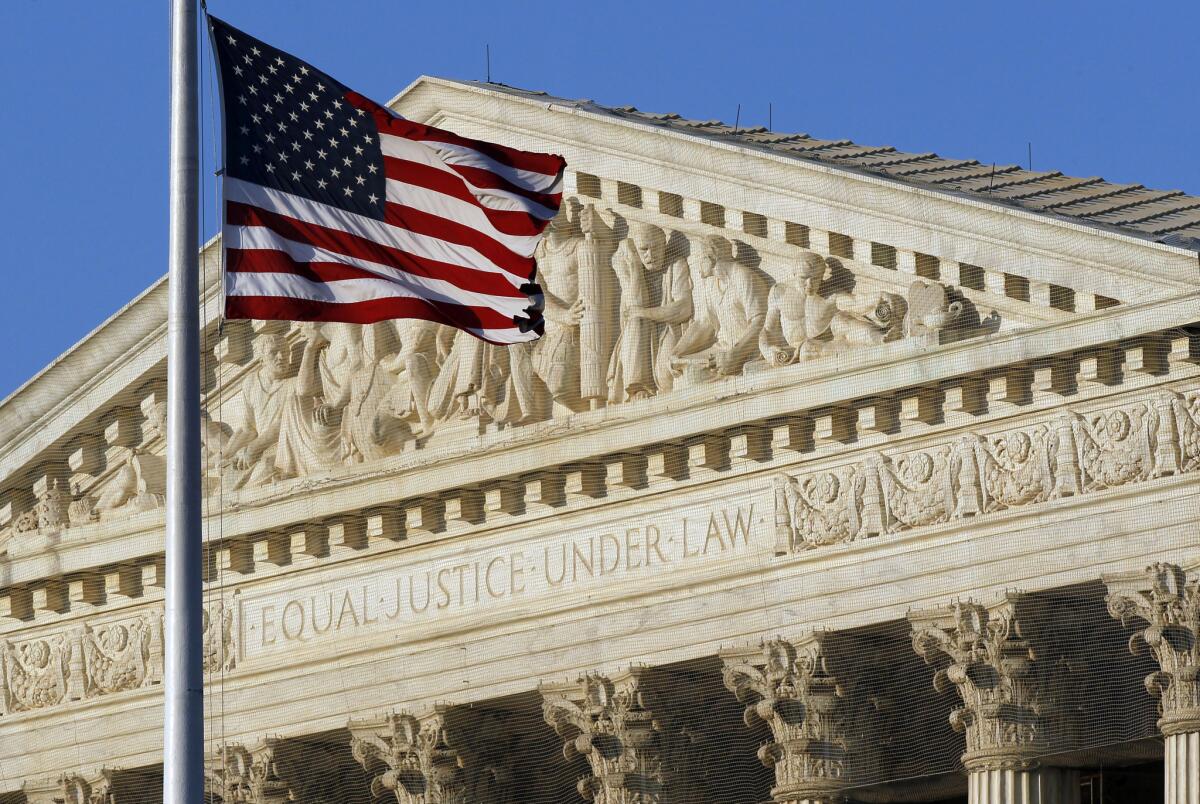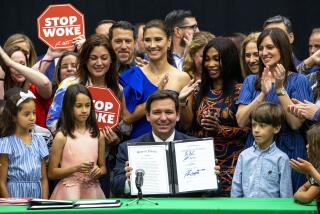Supreme Court blocks overseas human rights cases from U.S. courts

WASHINGTON -- The Supreme Court declared Wednesday that U.S. courts will not be the world’s forum for deciding lawsuits alleging human rights abuses by corporations and tyrants on foreign soil.
In a 9-0 decision, the high court tossed out a lawsuit brought by Nigerians against Royal Dutch Petroleum alleging the company conspired with the Nigerian regime in a campaign of rape, torture and murder in the oil-rich delta in the early 1990s.
The suit had become a test of whether U.S. courts could serve as a judicial forum for victims of gross human rights abuses abroad. Its claims were filed under the recently rediscovered Alien Tort Statute of 1789, which opened the courts to claims based on the “law of nations.”
Chief Justice John G. Roberts Jr., in an opinion that was joined by four other justices, moved to limit the interpretation of that law in a decision that will be welcomed by corporate America.
Roberts invoked the “presumption against extraterritorial application” in holding that the 1789 law does not open the courthouse door to hearing legal claims based on conduct outside of this country. “United States laws govern domestically, but do not rule the world,” he said.
Speaking in the court, Roberts said most of the human rights suits involve “foreign plaintiffs suing foreign defendants for conduct that took place on foreign soil.” There is no reason to believe that the first Congress wanted to make U.S. courts the forum for deciding disputes from around the world, he said.
Since the mid-1980s, however, human rights lawyers have invoked the Alien Tort Statute as a way to win justice for victims of foreign atrocities. The Center for Constitutional Rights called the law “a vital tool for holding individuals, corporations and governments accountable for international human rights violations, such as torture, genocide and war crimes.”
But corporate leaders here and around the world have urged the Supreme Court to rein in the law. They say corporations increasingly found themselves being targeted by suits claiming they had aided or abetted rights abuses in foreign lands.
Wednesday’s opinion by the chief justice appears to block most but not all such claims from being heard in U.S. courts. Justice Anthony M. Kennedy in a concurring opinion noted that the Torture Victim Protection Act would allows suits against officials who commit acts of torture abroad.
Justices Antonin Scalia, Clarence Thomas, Samuel A. Alito Jr. and Kennedy joined the Roberts opinion in the case of Kiobel vs. Royal Dutch.
The court’s four liberal justices said they agreed that the suit against Royal Dutch should be thrown out. “Mere corporate presence” in the United States is not enough to justify suing a multinational corporation here, said Justice Stephen G. Breyer. But he said the court majority had gone too far in closing U.S. courts to deciding suits involving abuses abroad.
Nan Aron, president of the liberal Alliance for Justice, called the decision “a blow to decades of human rights law.”
Follow Politics Now on Twitter and Facebook
More to Read
Get the L.A. Times Politics newsletter
Deeply reported insights into legislation, politics and policy from Sacramento, Washington and beyond. In your inbox three times per week.
You may occasionally receive promotional content from the Los Angeles Times.







